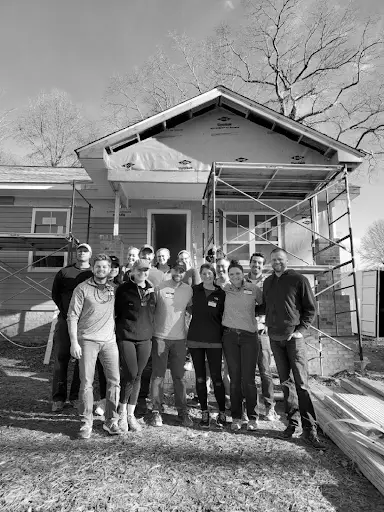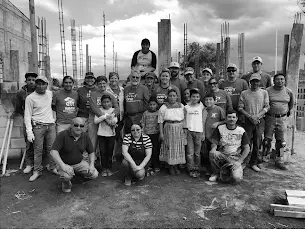
Getting inside the affordable housing issue in Greenville
Since 1985, Habitat Greenville has helped build affordable housing across Greenville County – in every city and almost every community. Approximately 10 to 12 families are served annually by our home building and home rehabilitation program. Additionally, 25-35 families receive repairs and weatherization services for their owned home in our collaborative program with volunteers and Furman’s Shi Center for Sustainability.
Each home build is managed by a staff construction superintendent. Volunteers who work on Habitat homes are led by members of our Quality Assurance Team and skilled task leaders. Electrical, plumbing, drywall, HVAC, cabinet and flooring installation, and concrete work are contracted.
Habitat homes meet high construction standards and are Energy-Star and National Association of Home Builders ICC-700 certified. All homes undergo thorough inspections, just as any other home built in Greenville County. The result is attractive, well-constructed, and affordable homes and communities that transform the lives of families with low income.
Why Habitat is Needed
Lack of affordable housing can seep into every aspect of life. It forces families with low income to live in substandard rentals that consume much of their finances for rent and energy costs. This leaves little money for food, healthcare, transportation and education. Families often move from rental to rental seeking lower housing costs, which triggers educational instability for children.
Habitat brings families, community partners and volunteers together to construct affordable, energy-efficient homes that help families build stability, strength and self-reliance. In fact, the stability provided by homeownership is recognized as the leading factor in children’s academic success.
The Habitat program has been carefully designed to ensure successful outcomes. This success is based on the following model.


Our foreclosure rate is less than 0.4%. As families pay their mortgage, they develop equity in their home, which changes their financial trajectory and helps break the generational cycle of poverty. In turn, families are more stable, and neighborhoods and whole communities are strengthened.
Our Homeownership Impact Survey provides evidence of the impact of affordable homeownership in the lives of families with low income.